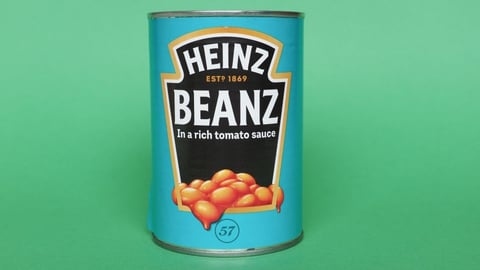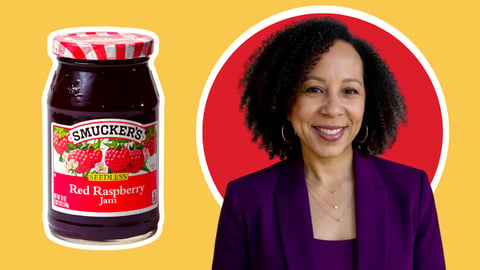How Creativity Can Help the Alcohol Industry Weather the Storm
The economic shock of the COVID-19 pandemic will be felt by virtually all businesses across the world for years to come. For alcoholic beverage makers, the outlook is challenging. In fact, Accenture’s research shows net demand for alcohol products shifted dramatically downwards (by more than 10%) in the two weeks from the start of the outbreak.
In response, companies are adapting to the highly variable demand patterns by thinking creatively about how to repurpose their operations and capabilities to support customers and societies as they manage the acute challenges of the crisis.
Shoppers forced to refocus on home consumption during lockdowns saw some brands benefit from sales through online and retail channels. New research from Accenture reveals that while 32% of consumers’ current purchases of all products and services have been online, that figure is expected to rise to 37% going forward. But this is more than offset by the collapse in sales via bars, restaurants and catering for events and large gatherings.
See also: How COVID-19 is Influencing the Toys Category
These shifts present a double-edged sword for alcoholic beverage companies: There is a clear opportunity here to grow the business by increasing agility, responsiveness and resilience, but this opportunity brings with it a higher operating cost structure, which can impact margin.
Leaders of alcoholic beverage companies can, however, take immediate steps to ensure their businesses can weather the COVID-19 storm. There are three crucial areas of focus leaders should be addressing simultaneously.
1. Protect the business and the people it serves
Until a vaccine is found, consumption in bars and restaurants will be impacted for the foreseeable future. It means alcoholic beverage companies need to work to maximize the opportunities in the channels where demand is now surging. To do that, they’ll need to work with bars, restaurants, wholesalers and retailers, as well as delivery partners, to plug any gaps in trade or direct-to-consumer channels. Longer term, careful analysis will be needed to anticipate how many of these new consumer behaviors will stick and then adapting the portfolio and financial models accordingly.
The crisis also calls on alcohol companies to consider how best to support customers. Short-term flexibility is key: Brands need to be prepared to extend payment terms, especially for customers whose entire businesses may be in temporary lockdown.
The crisis also provides alcoholic beverage companies a chance to live up to corporate values and purpose by playing a role in helping societies manage the crisis. We have already seen this play with some companies thinking innovatively about how underutilized assets or manufacturing capacity can be repurposed to meet medical and social needs.
Alcohol-based hygiene products are an obvious case in point. Many local distilleries, as well as major manufacturers have shifted production to branded hand sanitizer gels, which they are then donating to support the fight against coronavirus.
See also: More Beauty Brands Jump on Hand Sanitizer Bandwagon to Fight COVID-19
This kind of initiative can be used to kickstart a broader responsibility or sustainability drive for the business, such as plugging manufacturing byproducts into the circular economy.
These factors were already on an upward trend in consumer priorities pre-crisis and are likely to be even more salient now.
2. Reset how you work
In times like this, it is vital to invest the time, effort — and where possible, money — to deliver a positive experience and service provided across the full ecosystem of suppliers, customers and consumers. Post-pandemic, people will remember positively the businesses that were helpful and supportive. Longer term, this is an opportunity to increase brand and employee loyalty, as well as the use of online tools and platforms: accelerating the digital transformation that was already underway.
Consider how Carlsberg is supporting bars in its homeland by asking Danes to “adopt a keg”. Every time someone drinks a bottle or a can of Carlsberg at home, they scan the label and add it to their virtual keg on the Carlsberg’s website. Post-lockdown, they can exchange it for a real beer when the bars reopen.
Amid physical “distancing,” consumers are moving to online channels to find new ways for human connection from the comfort of their home. Online happy hours, quizzes and meet ups have become more commonplace as people adapt to their new reality. And with everyone at home, there is an opportunity to get creative about consumer experiences. Look at what brands like BrewDog are doing, for instance, with their online bar. It’s a really creative way to engage with consumers and share a beer while lockdown rules are in place.
One of the side effects of the pandemic has been a shift to consumers “cocooning” and “nesting” at home. By offering a slice of pre-COVID-19 experience via virtual cocktail lessons, “meet the winemaker sessions” or tutorials on home brewing, there’s an opportunity to enhance relationships with consumers further.
And while the shift to e-commerce is accelerating substantially, so is the “move to local”. Local products and brands have been gaining popularity across the globe in recent years, but in the wake of COVID-19, the pace and scale of demand is increasing. Although people will continue consuming alcohol, the nature of that consumption will likely change (e.g. Switching to local brands, switching to low alcohol options).
We can also expect to see a profound impact on consumption as people look to re-prioritize what’s important to them. For many consumers, this has been a focus on their own mental and physical health as they look for a sense of connection and community in this time of crisis and potential isolation. Almost four in four in five (79%) of global consumers say they feel more connected to their communities.
3. Renew for a new era of growth
As lockdown restrictions start to ease in some markets, the reopening process for the alcohol trade industry will be undoubtably complex. To ensure the return goes as smoothly as possible, collaboration — to ensure the right recovery strategies are in place — will be crucial.
Many businesses will face severe financial difficulties over the coming months. It means Finance will have a vital role in preserving cash in the short term and creating protective buffers for the future. While investments will inevitably need to be paused, forecasts rewritten and costs cut, the crisis also provides a chance to review investment priorities and rebalance portfolios to help the business adapt to changing consumer behaviors.
There’s no doubt this will be the most testing period many companies will ever have experienced. But as the present crisis passes and economies start to recover, successful companies will be those who manage the immediate challenges, drive portfolio revaluation across the industries, while also understanding and anticipating the longer-term implications for their business.
Oliver Wright is managing director, global lead Consumer Goods & Services at Accenture.





